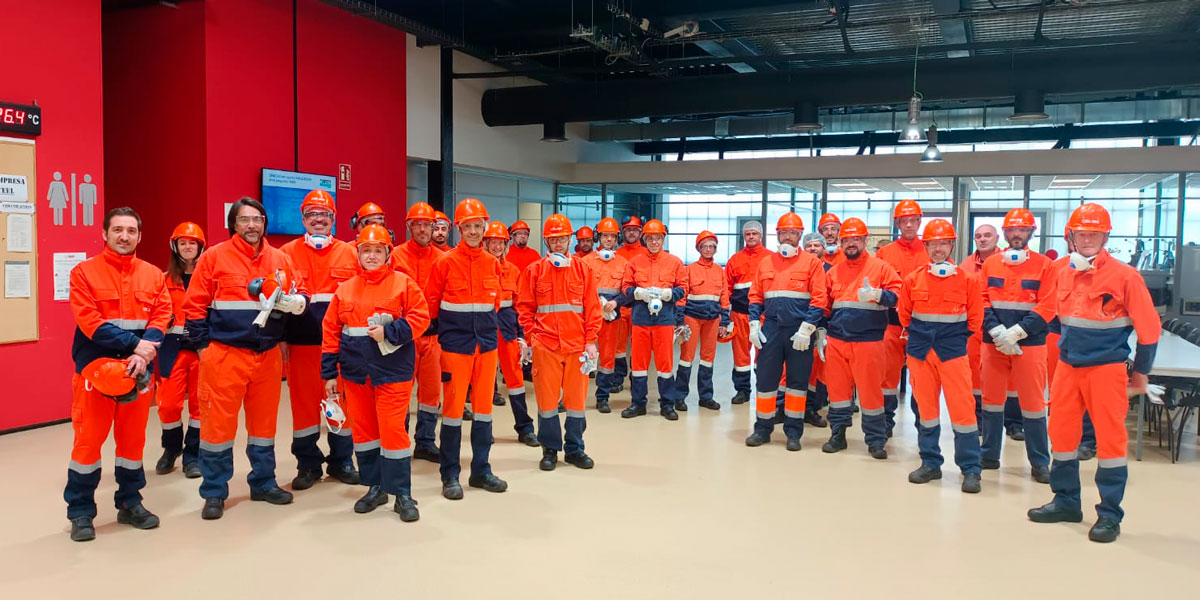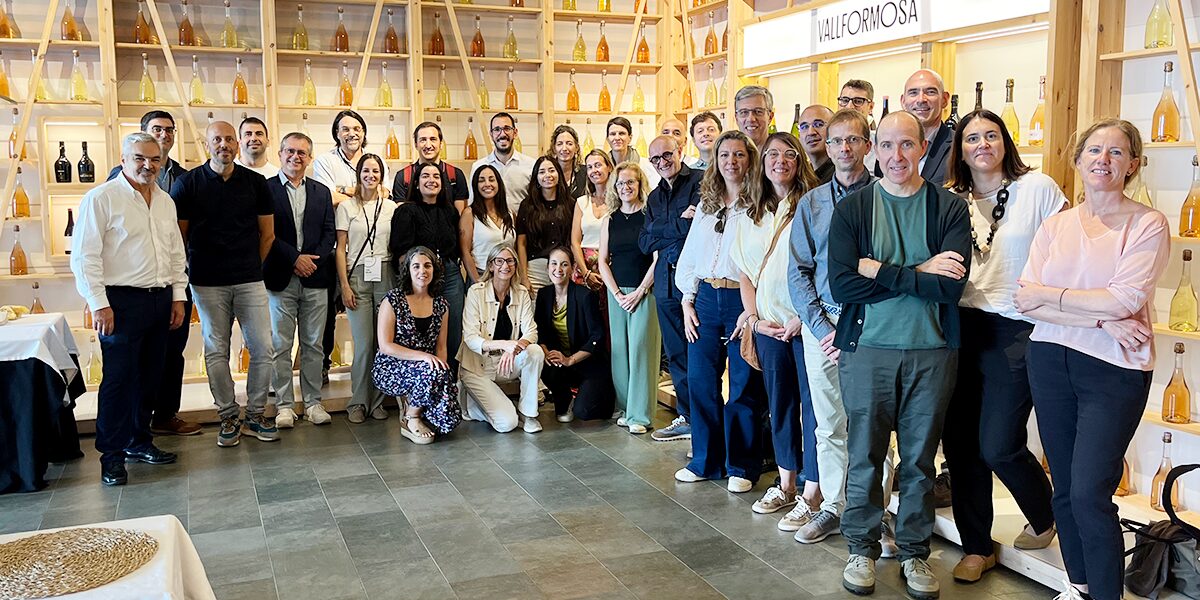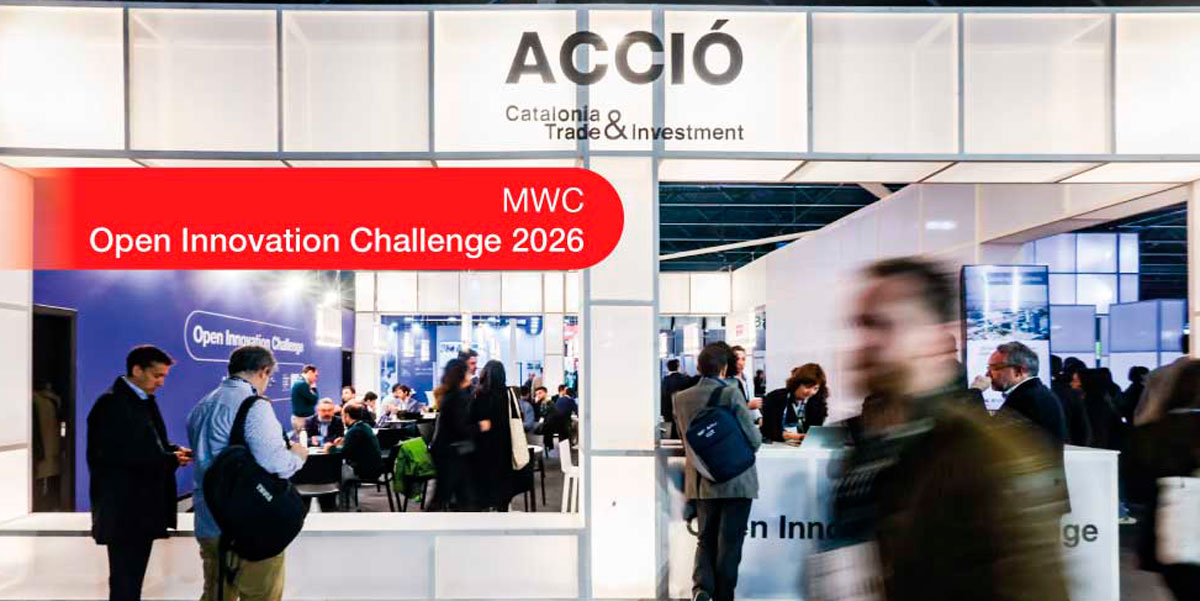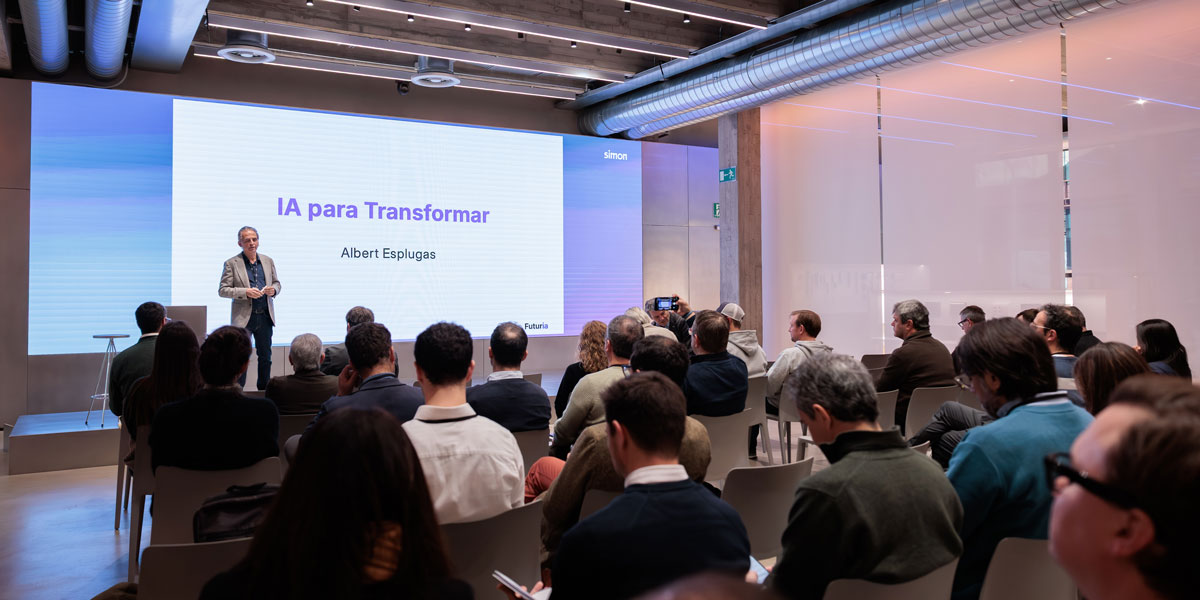Innovation and Cybersecurity at Telefónica. We visit their hub of technological inspiration in Madrid.
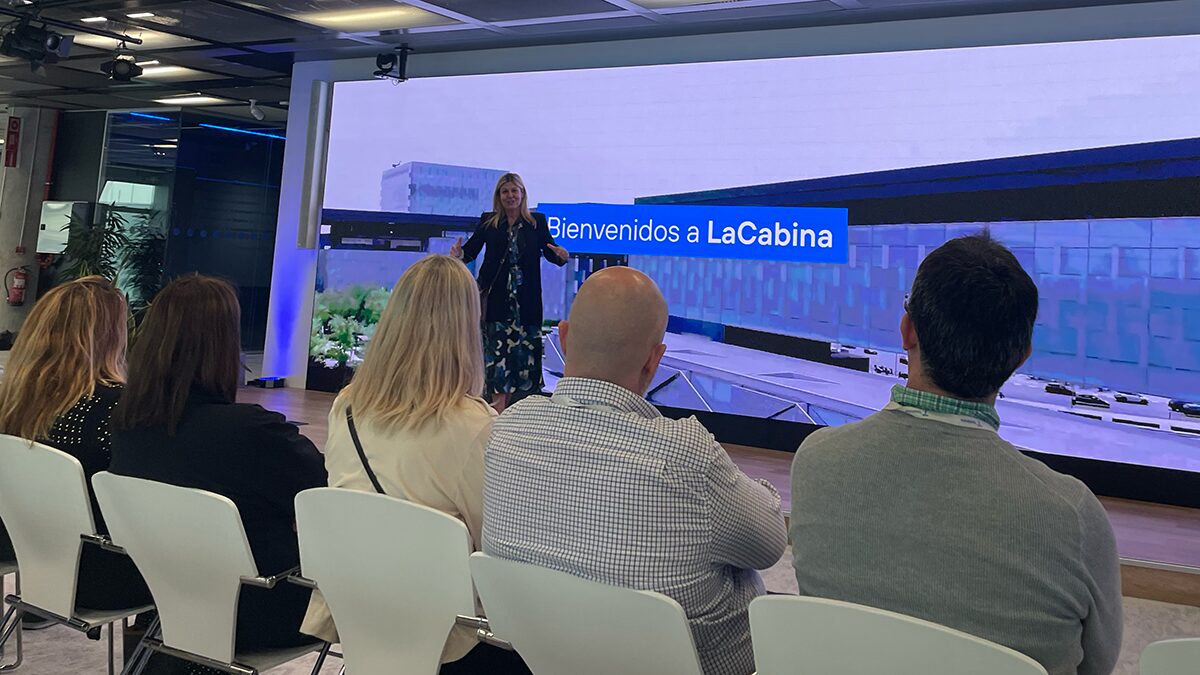
October 10, 2024
On October 7, during the INDPULS innovation event in Madrid, we had the opportunity to visit La Cabina, Telefónica’s hub of technological inspiration, where we were welcomed by María Eugenia Borboré, the company’s Industry Manager. During her talk, she highlighted Telefónica’s commitment to technological innovation throughout its more than 100 years of history and how the company has managed to lead the sector by sharing processes and technology with its clients. Today, IT services generate more business than traditional telecommunications services, reflecting the industry’s shift toward applied technological solutions, such as the recent acquisition of Geprom. María Eugenia emphasized the need for technology that not only enables but also applies and transforms processes, ensuring collaboration with the world’s top industry leaders.
Industrial Cybersecurity: Telefónica Tech’s Value Proposition
During the visit, Vicente Segura, Product Manager of Cybersecurity at Telefónica Tech, shared his insights on the current state of the industry and the digital environment. In the era of artificial intelligence, the energy consumption associated with a simple search can be significantly higher compared to traditional searches. Despite the growing importance of the industrial sector, and especially the energy sector, investment in its development remains insufficient.
In this context, two schools of thought emerge: the Neo-Malthusians, who advocate for solutions to resource scarcity, and the Techno-Optimists, who argue that resources are abundant if new sources are explored. Against this backdrop, the future of the industry is moving toward cyber-physical systems with digital brains capable of operating autonomously, powered by advanced connectivity.
However, the reality is that these systems face serious cybersecurity challenges, as many operate with outdated software and lack security updates. This vulnerability leaves the most critical sectors exposed, such as manufacturing, which has been the most targeted with 26% of global cyber incidents.
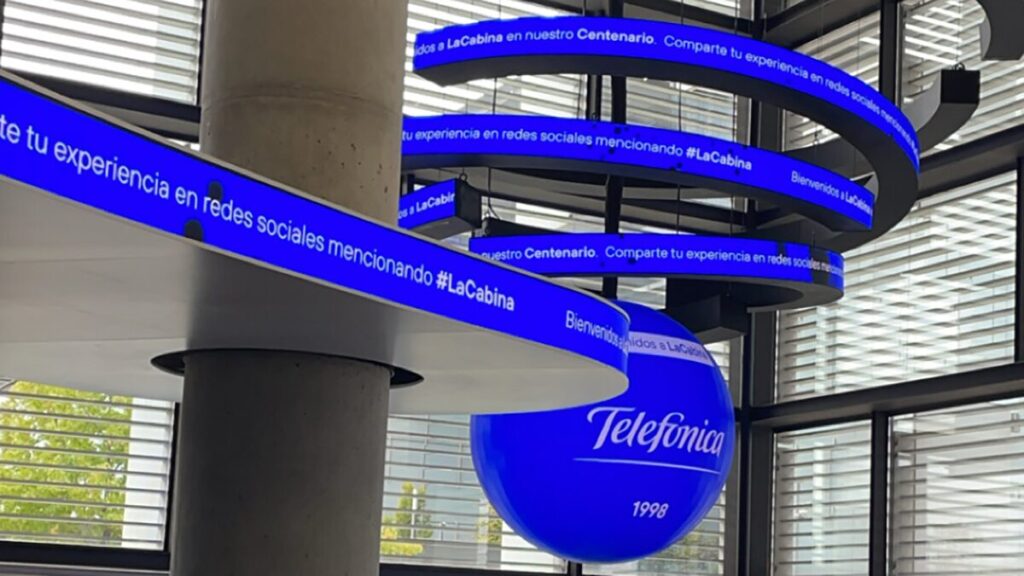
Telefónica’s Strategy to Secure Industrial Environments
Telefónica Tech proposes conducting industrial cybersecurity assessments through information gathering and traffic capture at the plant level. This process enables the detection of unknown services, vulnerable systems, and unauthorized access, providing corrective and preventive recommendations to protect industrial systems.
One of the key points highlighted was the need to implement a “Mission Critical SOC” (Security Operations Center) that coordinates basic cybersecurity functions and enables an efficient response to potential threats. Telefónica Tech also emphasized the importance of having full visibility of assets and risks to which industrial systems are exposed, implementing countermeasures tailored to each environment.
Innovation in Industrial Logistics and Production
In addition to cybersecurity, Telefónica Tech presented innovative solutions for the logistics and production sectors. These include fleet traceability through driver behavior monitoring, item identification with RFID technology, and the use of artificial vision to detect anomalies in logistical processes. Additionally, the integration of drones and RTLS technology (Bluetooth Low Energy) enables more precise inventory control and improved coordination between operators and robots, enhancing efficiency.
On the other hand, artificial vision-assisted production enables real-time control of quality and performance at the plant, while Aristeo, a decoy solution, facilitates the detection of vulnerabilities in industrial systems.
Generative AI and Augmented Reality at Telefónica
Telefónica also embraces the use of generative AI for predictive maintenance and technical documentation queries, streamlining access to relevant information. Augmented reality plays a crucial role in operator training, whether for assembly tasks or remote assistance, contributing to greater efficiency and safety in processes.
Finally, the incorporation of blockchain technology for traceability and digital twins, which virtualize processes to predict their behavior, strengthens trust and transparency in the industrial value chain.
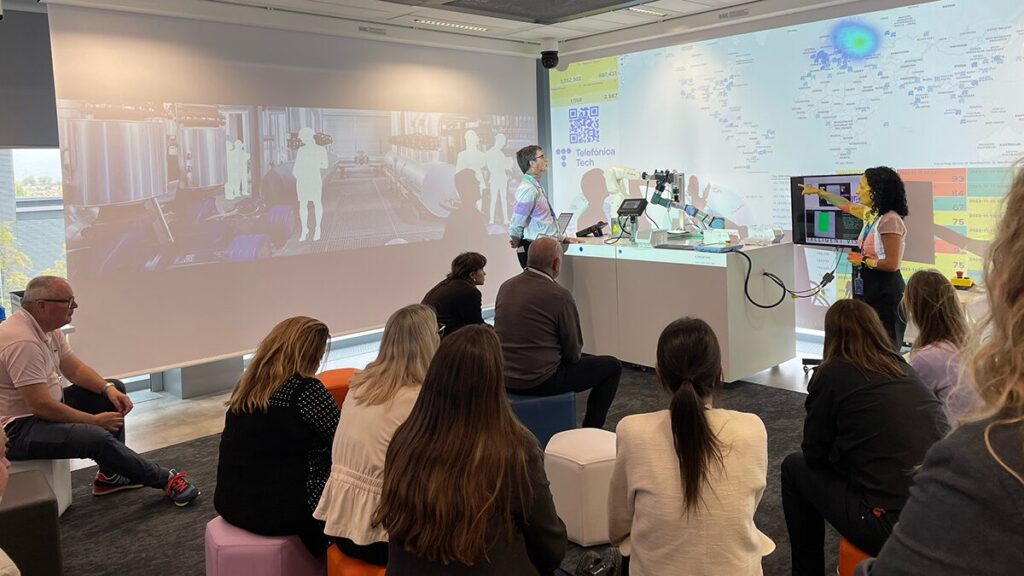
The visit to Telefónica Tech during the INDPULS innovation event in Madrid demonstrated how the company remains a leader in industrial innovation, addressing the challenges of today and laying the foundations for a more connected, efficient, and secure future.
